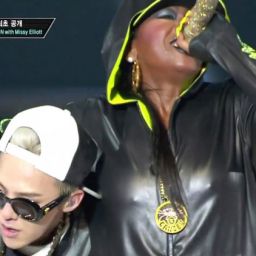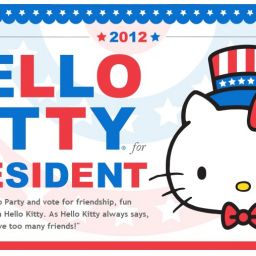[youtube=http://www.youtube.com/watch?v=gQWTxDd4a7E]
Two recent books, East Asian pop culture : analysing the Korean wave (EAPC) & Pop goes Korea : behind the revolution in movies, music, and internet culture, discuss the Korean wave of pop culture — called hallyu in Korean (and hanryu in Japanese).
While there have been several books written about hallyu in Korean — and Korean pop culture icon Rain has appeared on the Colbert Report based on his placement in Time Magazine’s “Most Influential” list for three years running, these are the first books about hallyu written for an English language market.
The books dramatically vary in tone and focus — Pop Goes Korea focuses on the business and economic aspects of Korean pop culture in the last ten plus years while EAPC focuses on hallyu from an academic perspective and primarily on hallyu’s impact throughout other East Asian countries (China, Taiwan, Hong Kong, Japan, and Singapore). Both books are highly recommended and complement each other — but Pop Goes Korea is a better starting point for the average reader looking for a basic understanding of Korean pop culture.
Mark James Russell‘s business oriented focus makes sense, considering his experience as a Korean-based entertainment journalist for American publications. Therefore, Pop Goes Korea gives an excellent overview of how the film industry has changed, allowing local films to reach success at home and abroad, including a highly successful film festival.

Pop Goes Korea also analyzes the Korean equivalent to Motown (if Motown was mostly boy bands) SM Entertainment and why so much of modern Korean music sounds like early 90s American R-and-B. There is also discussion of television dramas through the lens of the experiences of one actor. For any reader that would think that manhwa (Korean comics) are derivative of either manga or American comics, the book quickly disabuses the notion:
Korea’s comic artists and writers continue to create whatever it is they want to create, and over the years have produced some of the most interesting comic books in the world.
Unlike Pop Goes Korea, EAPC does have a great detail of analysis of fandom. In discussing why Korean television dramas are popular throughout Asia, Doobo Shin in the essay “The Growth of Korean Cultural Industries” in EAPC states
I would argue that the cultural consumption is a negotiation process between consumers and cultural artefacts. In this process, consumers invest their time, money, energy and emotional allowances in cultural commodities in order to acquire pleasure and make meaning. Many commenters note that Korean television dramas touch the right chord of Asian sentiments, such as family values and respect for elders.(26-27)
Elsewhere in EAPC, there is discussion of how “Asian”, Confucian or qing (compassion), Korean media is and why it attracts fans. As a non-Asian (by location or origin) fan of Korean dramas, this is obviously not the only reason to be a fan!
Chua Beng Huat makes an important point about the potential power of fans in discussing fansubbing communities:
The consumers/participants/members are initiated by the passionate involvement of a few multilingual and technologically savvy individuals, taking the lead in constantly doing the painstaking work of initiating and amending translation/subtitling of their favorite drama series. These are done for the benefit of the other members of the fan community, beyond the clutches of profit-oriented market players and the copyrights and censorship constraints of the nation state.
There is also an active fansubbing to English community for Korean dramas / soap operas, working similarly to anime fansubbing. I, however, wait to watch my stories after licensing, both due to quality (sometimes fansubbing ends midstream) and so I can find new restaurants in ads.
Bluntly, I feel too ignorant of the ethnic and historical divides amongst Asian cultures to properly analyze and understand the impact of hallyu in East Asian pop culture : analysing the Korean wave, as discussed in Section III-Nationalistic Reactions. But that is one of its strengths — the information here is not readily available to those who do not have access to academic publications in Korean, Japanese, and Chinese.
My favorite essay is Yoshitaka Mori’s Winter Sonata and Cultural Practices of Active Fans in Japan — both for its in-depth discussion of a particular fandom and for how much this essay reminded me of the fandom writings of Henry Jenkins.
Yoshitaka Mori states that
Winter Sonata fans are [portrayed as] passive, manipulated and poor ‘consumers.’ This pejorative perception is often uncritically reproduced both in academia and in the circle of critical leftist intellectuals. I would suggest that, on the contrary, once their activities are examined in detail, a lot of complicated and interesting cultural, social and even political possibilities can be discerned. [Fans can be] active cultural agents. (132)
Fandom truly is universal.
Both of these books left me wanting more, especially about the experiences of fandom. How is Korean culture experienced by those outside of Asia? How connected do Korean-Americans feel to Korean pop culture? What is the impact and influence of Soompi (a very popular English-language Korean pop culture website)?
Russell provocatively implies that Hallyu doesn’t really have staying power in the U.S.:
the biggest Korean television impact in the United States has probably been Bobby Lee [a Korean-American comedian] and MadTV‘s Korean TV parody … Which says something when the parody of a trend travels faster and farther than the trend itself.
Korean television also travels poorly to the West, coming across as histrionic soap operas. … But for people used to C.S.I. and The Sopranos, there are only so many stories of separated twins and dying lost loves that one can take.
However, his statement is belied by the experiences of at least some (including me), who are becoming more interested in Korean pop culture. For example, these reviews of the Korean drama, Mom’s Dead Upset (the last episode in Korea had 40% of the audience!), show that non-Korean viewers are increasingly being drawn to this different style of storytelling.
Japanese pop culture in the West started as a subculture in with comic book fans becoming interested in manga and anime and spreading outward to become more mainstream. I think that the Korean Wave will get here to the U.S. too.








Thanks for linking to my blog! Your review got me thinking about Korean dramas as a whole and I couldn’t help critiquing Russell myself: http://tvkitty.blogspot.com/2009/01/can-korean-soaps-make-impact-in-us.html!
[…] personal milestone — the first online review of POP GOES KOREA. Kind of exciting to get that kind of feedback, especially from someone who I do not know. And best […]
[…] personal milestone — the first online review of POP GOES KOREA. Kind of exciting to get that kind of feedback, especially from someone who I do not know. And best […]
[…] Reach the U.S.?: Music: Part One Posted on 20 July 2009 by r Based on the popularity of our earlier post on the hallyu wave, we plan on writing more about Korean culture. We are starting with music — specifically pop […]
[…] now you know where to legally stream anime (at least in the U.S.) and considering our post on Hallyu was our most popular post last year, what about watching Korean dramas with English subtitles? For […]
[…] our very diverse blog posts, some of the most popular are about hallyu, the export of Korean pop culture. While still very much a subculture outside of Asia, the idea of […]
[…] https://thelearnedfangirl.com/2008/12/28/book-review-catch-the-hallyu-wave-two-recent-books-on-korean… […]
[…] write a lot about hallyu (exported Korean pop culture) on this blog, and K-pop has really started to hit the mainstream U.S. press this year, including a […]
[…] of the first book reviews I wrote for TLF all the way back in 2008 was about Mark James Russell’s earlier book on Korean pop culture, Pop Goes Korea. I still […]